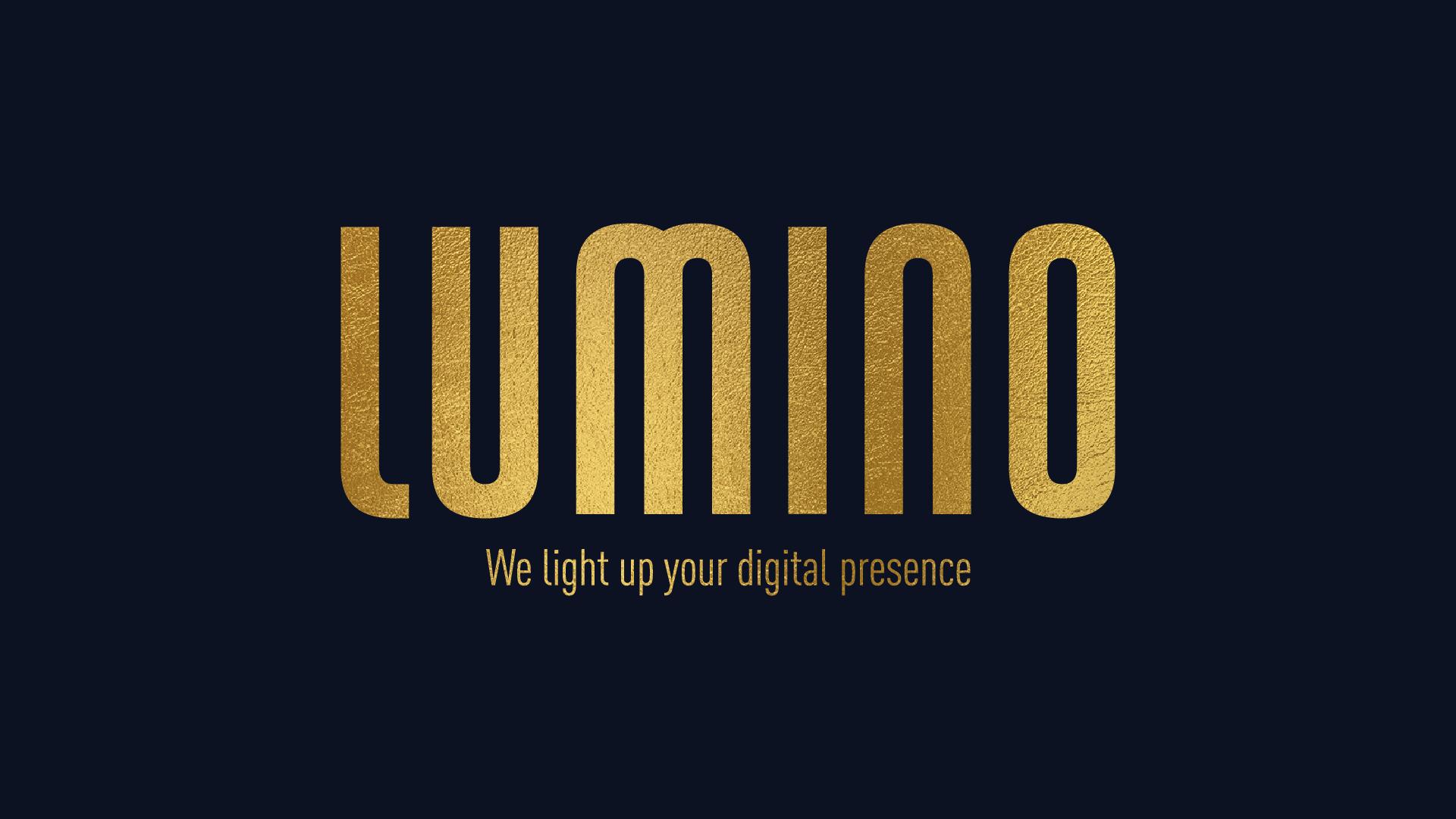Wikipedia Consulting
Lumino can guide you through even the most difficult Wikipedia engagements
Feeling lost at sea when it comes to navigating Wikipedia? Tired of engaging on the site only to run into pitfalls, having progress stalled, or getting punished for unspecified rule breaking?
You're not alone. Many brands and organizations are interested in creating new articles about themselves and updating existing ones. Confusion remains, though, about how best to contribute to the site, especially as the editorial guidelines that shape content seem to have shifted considerably in recent years.
Good News
Lumino can guide you through even the most difficult Wikipedia engagements while staying completely in-line with the site’s guidelines.
Our Wikipedia consulting team has been working on the site for nearly 15 years and during that time we’ve partnered with Fortune 500 companies, the world’s top PR firms, politicians and executives, global foundations, and many more. We're the absolute best agency in the world at handling Wikipedia and related sites, and when you need expert advice, you shouldn't accept subpar alternatives.
We can help with:
Updating Outdated Articles
Engaging with Wikipedia’s Editors
Reflecting Mergers, Acquisitions and other major business developments
Training your team and implementing Wikipedia into your service offerings
-
The value of Wikipedia can be explained by answering a single question:
When journalists, customers, investors, or prospective employees search for your brand and executives, what will AI or Google search show them?
Chances are high that Wikipedia will be a top search result since it powers LLM databases and Google’s Knowledge Graph. It is also what voice search reads from any time people ask Alexa, Siri, or Google about a topic.
When web users are trying to learn more about a brand they will often gravitate to a Wikipedia article instead of a company’s own website because of Wikipedia's reputation as an independent source of information and its ability to offer readers (and journalists!) a more comprehensive overview of a company’s activities.
Because Wikipedia is such an important piece of a brand's digital presence, the implications can be huge when inaccurate or misleading claims are allowed to persist there indefinitely.
-
Wikipedia may have advertised itself to us over the last 20-some years as “the free encyclopedia that anyone can edit.” but it turns out that’s not entirely true. That tagline only applies if you’re acting as a volunteer editor for a topic or article to which you have no connection. The minute there’s a connection between an editor and a topic on Wikipedia a strict set of rules start to apply that have been enacted to avoid bias and keep the site neutral.
In short, if you have a conflict of interest with a topic (which anyone you hire or ask to work on an article does) then two major rules apply:
• You and anyone you hire should never directly edit the article
• You and anyone you hire must disclose your connection to the topic of the article
Think of Wikipedia like a community engagement project. The site has no employees that are responsible for content, instead it’s all maintained by volunteer editors and these editors are the ones you as a brand representative need to propose content to via Talk Pages for their review and potential approval.
Of course, if it was that easy you could just do it yourself! However, the COI rules are just the tip of the iceberg. Underneath there are layers upon layers of particular rules for sourcing, tone, formatting, what content is allowed and more.
That’s where our agency comes in.
Lumino will educate your team, help you source and draft content, and guide you through the proper channels to propose content in a way that’s both in-line with the site’s rules and likely to be accepted.
Contact us to book a free consultation on your situation (helpful advice guaranteed!)
-
To live up to our Lumino promise of lighting the way, we want to help you shed some light on shady vendors.
If you’re shopping for a Wikipedia consultant, beware of bad actors who will capitalize on you not fully knowing how Wikipedia works. They will happily take your money, break the rules, and leave you with an article that's flagged, all your changes redacted, and a bad reputation with Wikipedia's editors hindering any future work you try to do on the site.
Their approach violates the site’s guidelines by making edits anonymously and directly to articles without editor buy-in. The result is almost always the same:
— the content will likely be removed
— the editor(s) involved will be banned from working on the page
— A “flag” may be added to the top of the article stating that the page was edited undisclosed or has promotional content
These suboptimal outcomes will render any investment made in the article for naught—and in the worst case could generate negative publicity and additional flags. You can find a list of firms banned for these practices here and note that our firm is one of few in the disclosed category (meaning we aren’t blocked). Additionally, check out our full Wikipedia shoppers’ guide for more tips on what to look out for.
Remember, it’s better to do nothing on WIkipedia than to do it wrong and open your brand up to risk (à la North Face).
Contact us to book a free consultation on your situation (helpful advice guaranteed!)
-
Writing for Wikipedia is entirely different than the type of wordsmithing you may perform in a marketing or communications role. The site is obviously an encyclopedia and its style guide insists editors use language that is "straightforward, succinct, [and] easily understood." What this is means in practice is that prose on Wikipedia is very flat, with minimal use of adjectives, adverbs, or broad proclamations. It's a style that requires a lot of experience to deploy correctly, and many newbie editors find themselves stumbling over proper wording.
Our team has years and years of experience writing for the site, and we are intimately familiar with not its manual of style, but also all of the formatting and coding required to properly cite sources and create subheadings.
If you're unsure of how to handle any of the above, we strongly recommend you reach out to experts (meaning us!) to make sure you put your best foot forward when engaging with the community of often-quite-finicky editors.
Additional Resources
The best way to learn the right way to work on Wikipedia in your specific situation is to book a call with us and, in the meantime, check out our Wikipedia resource library to learn more.
Webinar: Watch our on-demand Wikipedia Webinar
Newsletter: Sign up for Wikify, our no-holds-barred, Wikipedia-obsessed newsletter for comms pros who like their insights sharp, their humor dry, and their edit histories clean. From naming disputes to fandom edit wars, we cover it all with equal parts wit and wisdom
Resources Page: Check out our Wikipedia Resources page, featuring a list of most helpful Wikipedia rules and links as ranked by our clients
Blog: Check out our blog where we cover niche Wikipedia topics in depth
Frequently Asked Questions
-
Wikipedia has a variety of strict rules that come Conflict of Interest Guideline into play when you’re trying to create an entry on a topic related to you or your businesses. First, you must follow the Conflict of Interest Guideline, which requires that you 1) disclose your connection and 2) never publish the article yourself. Instead, you can propose an article for consideration by volunteer editors via Articles for Creation.
Second, you must ensure the topic meets Wikipedia’s Notability Guideline, which determines if a topic is able to have a new article. Most of this will come down to how much and what kind of media coverage a topic has. In general, Wikipedia's community is looking for substantial coverage of the topic in reputable publications, written by staff writers. Blogs, press releases, contributor pieces, any non-journalistic content, and anything directly from the topic can't be used. Given these challenges, it can be tough to assess if you meet the guidelines. For an accurate assessment it's best to contact a professional service like Lumino Digital to consult before engaging on Wikipedia. You can reach out to shout@luminodigital.com for our recommendations.
-
Yes, technically anyone can edit most of Wikipedia’s entries. However, there are certain rules and guidelines that should be followed in key situations. For example, if the topic of an entry is related to you or your business you must follow the Conflict of Interest (COI) Guideline, which requires that you 1) disclose your connection and 2) never edit the article yourself. Instead, you can propose changes for consideration by volunteer editors via the Talk Pages of existing entries but ultimately volunteer editors with no connection to you have to make the actual edits.
Also, in rare cases certain pages may be "protected", which limits who can edit them, preventing editing by anyone without a Wikipedia user account or with a newly registered Wikipedia user account. This is intended to prevent or limit problematic editing on certain topics.
-
We do not. The primary purpose of Wikipedia's administrators is enforcing the site’s rules and helping the site's community with additional tools made available to them. There’s a common misconception that administrators or senior editors have more access to the site than a standard editor and some blackhat firms will use this to their advantage, advertising an admin or senior editor on staff. Don’t be fooled by this tactic as it's very unlikely to be true and even if it is, the Conflict of Interest rules still apply, even to administrators. Regardless of editor status, disclosure must be made and "no direct editing" still applies.
-
Technically a person or a firm they hire can write drafts for the entry or edits to an entry they’d like to see. However, in-line with the Conflict of Interest (COI) Guideline they should never directly edit or make these changes. Instead, they propose the content they wrote for review and potential approval by volunteer editors on the site that have no connection to the topic.
-
When seeking to edit a Wikipedia page, it's important to be aware of the site's policies and guidelines to ensure that your proposed edits are accepted. It's also important to be neutral and unbiased in the language and content of your edits, as well as ensure that all sources you use are reliable and verifiable. Finally, be sure to provide references for any claims made in your proposed edits. As noted above, you must follow the Conflict of Interest rules if you have any personal or professional connection to the topic you want to edit, and do not edit directly. Thankfully, Lumino Digital understands the protocols and procedures to follow and you can find a list of the main rules and resources here or reach out to shout@luminodigital.com for a consultation.


